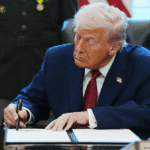RBI Leads Global Gold Purchases with Record Reserves Surge
The Reserve Bank of India (RBI) has achieved a significant milestone by leading global gold purchases, registering a record surge in its gold reserves. According to the latest data, India has added substantial amounts of gold to its reserves, positioning the RBI as one of the largest purchasers globally. This growth in gold reserves comes at a time when global central banks are increasing their gold holdings to hedge against economic uncertainties, such as inflation and volatile currency fluctuations.
India’s Record-Breaking Gold Reserves
India’s gold reserves have witnessed a sharp increase, with the RBI acquiring a remarkable quantity over the past year. These purchases are part of India’s long-term strategy to diversify its foreign exchange reserves and safeguard the nation’s financial stability. As of the latest update, India’s gold holdings have crossed an all-time high, reaching over 800 tonnes, a significant achievement for the country’s monetary policy.
Global Trends and RBI’s Role
Globally, central banks have been increasing their gold reserves amid concerns about the US dollar’s weakening status. The RBI, with its proactive gold purchasing policy, is playing a crucial role in these global trends. India’s gold purchases have not only contributed to its reserves but have also strengthened its standing in the global economic arena. The central bank’s strategy reflects a broader global shift towards gold as a secure asset in times of financial volatility.
Impact on India’s Economy
The surge in gold reserves is expected to have a positive impact on India’s economic landscape. The increased gold holdings enhance the country’s financial security and provide an additional buffer during economic downturns. Moreover, these gold reserves contribute to the strengthening of the Indian rupee, making it more resilient against external shocks. This strategic move by the RBI underscores the importance of gold in global economic policies, especially as nations seek to protect themselves from inflationary pressures and currency devaluation.

Why This News is Important
India’s Economic Security
This news is significant for India’s economy as the surge in gold reserves by the RBI plays a vital role in strengthening the country’s economic security. Gold has long been considered a safe haven asset, particularly during times of economic uncertainty. By increasing its gold reserves, India is bolstering its financial stability and reducing its dependency on other forms of reserves, such as foreign currencies. This move also enhances the country’s ability to manage inflation and external shocks, which is crucial for its long-term economic growth.
Global Influence of RBI’s Purchases
The RBI’s leadership in global gold purchases further cements India’s position in the international financial system. As central banks worldwide seek to diversify their portfolios, India’s proactive stance signals its commitment to securing its financial future. This could lead to greater confidence in India’s economic policies, attracting more foreign investment and promoting overall stability in the country’s financial sector.
Implications for Government Exams
For students preparing for government exams, particularly in fields related to economics, banking, and policy analysis, understanding the RBI’s strategy in gold purchases is essential. This news highlights India’s fiscal prudence and strategic economic moves, which are vital topics in government exams. Moreover, it reflects the broader global economic trends and central bank policies, which are commonly covered in competitive exams such as UPSC, banking, and civil services.
Historical Context: Background Information
The Reserve Bank of India has a long history of managing the nation’s monetary policies and foreign reserves. Gold has always played an essential role in the RBI’s strategy, especially after India gained independence in 1947. Over the decades, India has seen fluctuations in its gold reserves due to changing economic conditions, both domestically and globally.
In the 1990s, when India faced a major balance of payments crisis, the country’s foreign reserves were in jeopardy. During that period, India had to pledge its gold to secure loans from the International Monetary Fund (IMF). Since then, India has worked to rebuild its gold reserves as part of its broader economic recovery.
In recent years, the RBI has taken a more active role in gold purchases, driven by global uncertainties such as the global financial crisis of 2008 and the recent volatility in the global markets. These factors have prompted central banks worldwide to increase their gold holdings as a hedge against currency devaluation, inflation, and geopolitical risks.
India’s consistent purchase of gold over the past few years has been part of this strategy, and it represents the country’s growing economic confidence and its desire to safeguard its financial future. This development is a key aspect of India’s economic policies, which are often discussed in competitive exams like the UPSC and other government recruitment tests.
Key Takeaways from “RBI Leads Global Gold Purchases with Record Reserves Surge”
| Serial Number | Key Takeaway |
|---|---|
| 1 | The RBI has significantly increased India’s gold reserves, reaching over 800 tonnes. |
| 2 | India’s gold purchases have made it a leading player in global gold buying. |
| 3 | Gold is being used by central banks worldwide as a hedge against economic uncertainty. |
| 4 | This surge in gold reserves strengthens India’s financial security and stabilizes the rupee. |
| 5 | The RBI’s actions reflect global trends of diversifying reserves amid currency volatility. |
Important FAQs for Students from this News
What is the RBI’s role in gold purchases?
The Reserve Bank of India (RBI) plays a significant role in increasing India’s gold reserves to strengthen the country’s foreign exchange reserves and protect against financial volatility. The RBI’s strategic gold purchases have positioned India as a leading player in global gold buying.
Why is the RBI increasing its gold reserves?
The RBI is increasing its gold reserves to diversify its foreign exchange holdings, enhance financial security, and protect against economic uncertainties like inflation and currency fluctuations. Gold is seen as a hedge against these risks.
How does gold benefit India’s economy?
Gold strengthens India’s financial security by adding stability to foreign reserves. It also acts as a buffer against economic downturns, inflation, and external shocks, thereby supporting the value of the Indian rupee.
What is the significance of RBI’s record gold reserves surge?
The surge in RBI’s gold reserves is a sign of India’s growing economic resilience and strategic planning. It enhances India’s financial stability, reduces dependence on foreign currencies, and boosts global confidence in India’s monetary policies.
How do global trends impact RBI’s gold purchases?
The global trend of increasing gold purchases by central banks reflects the growing desire to safeguard against risks such as currency devaluation and inflation. The RBI’s actions align with these global trends, ensuring that India’s financial security is enhanced during periods of global uncertainty.
Some Important Current Affairs Links

















